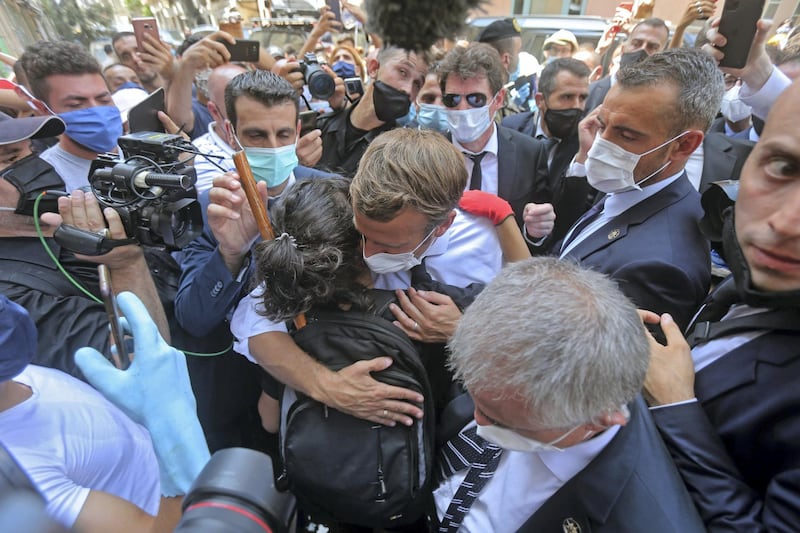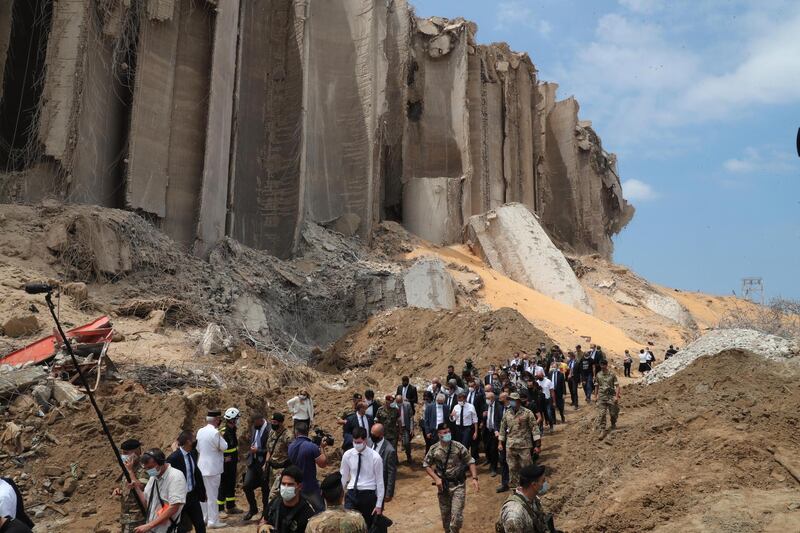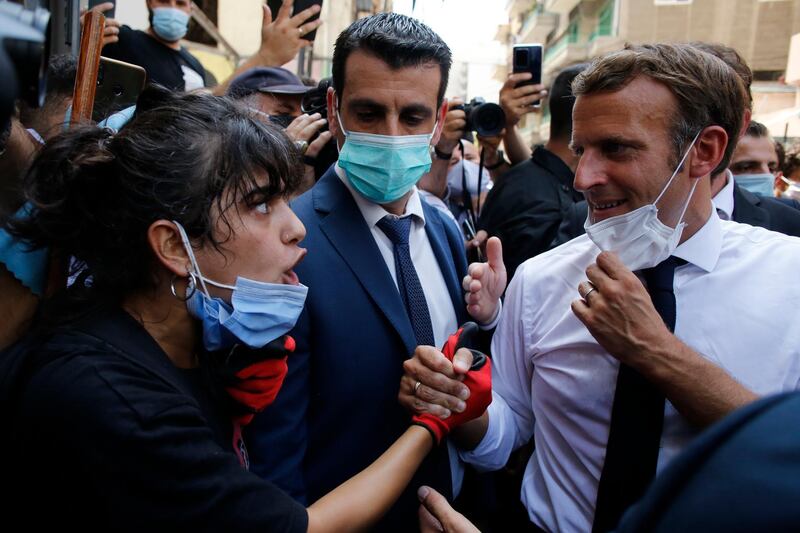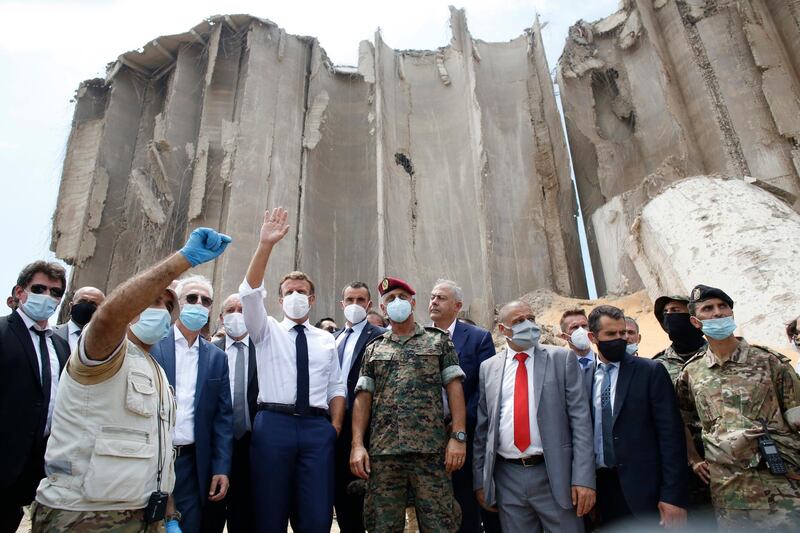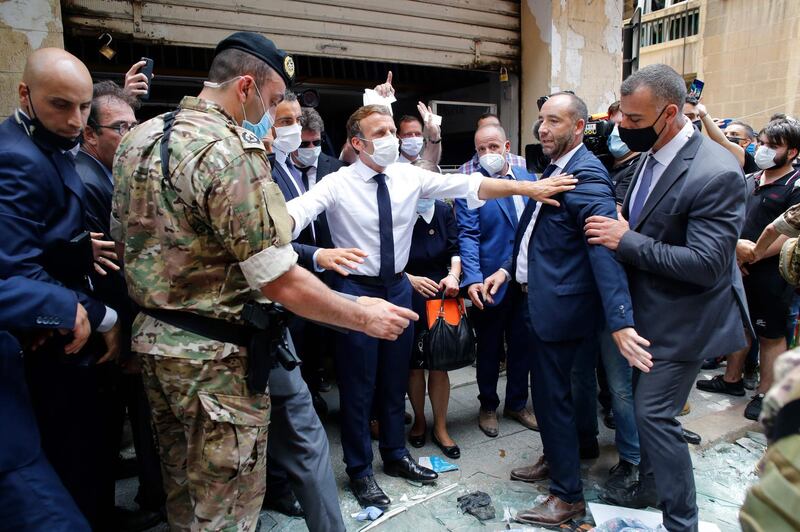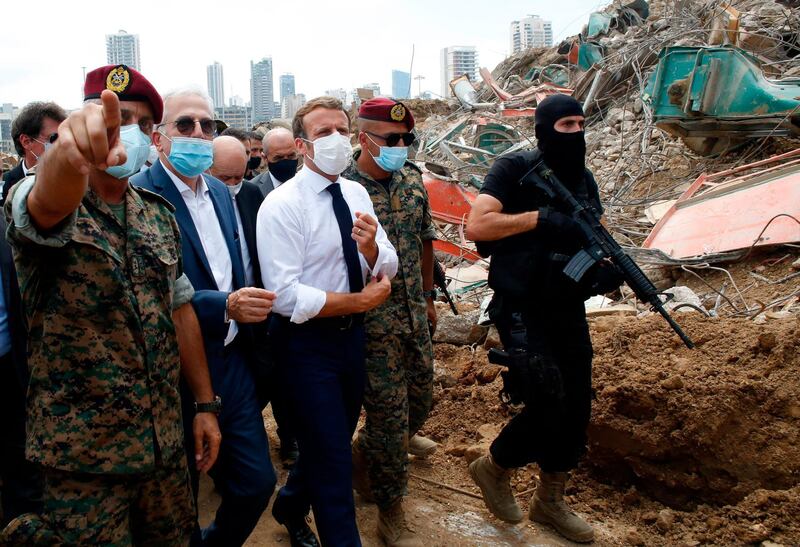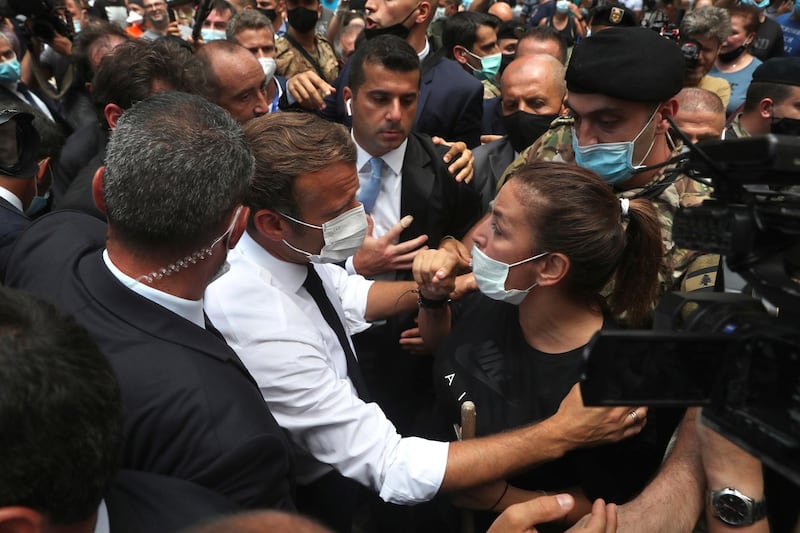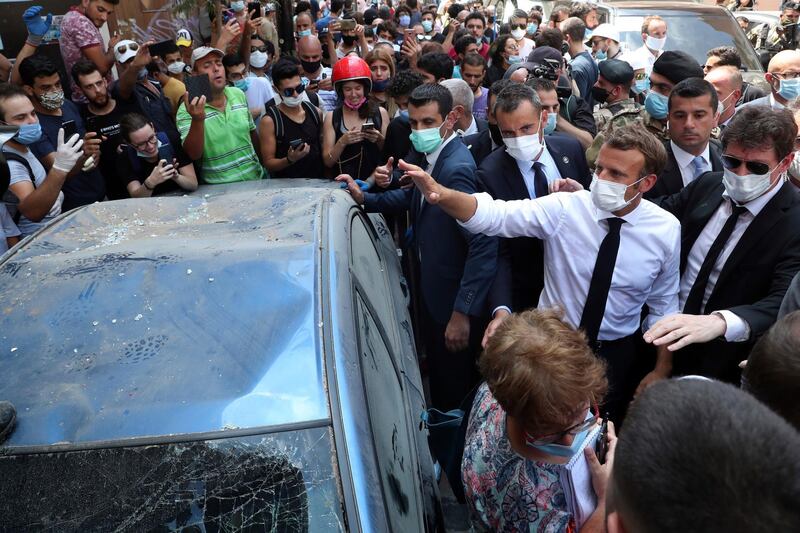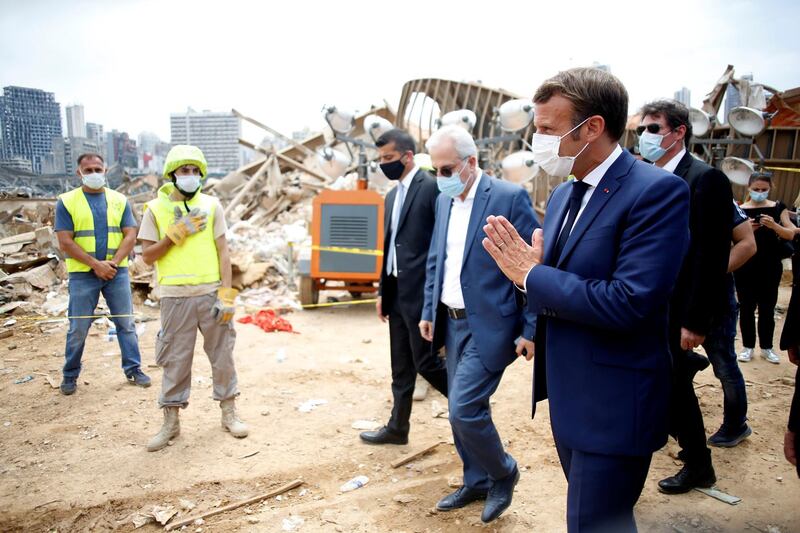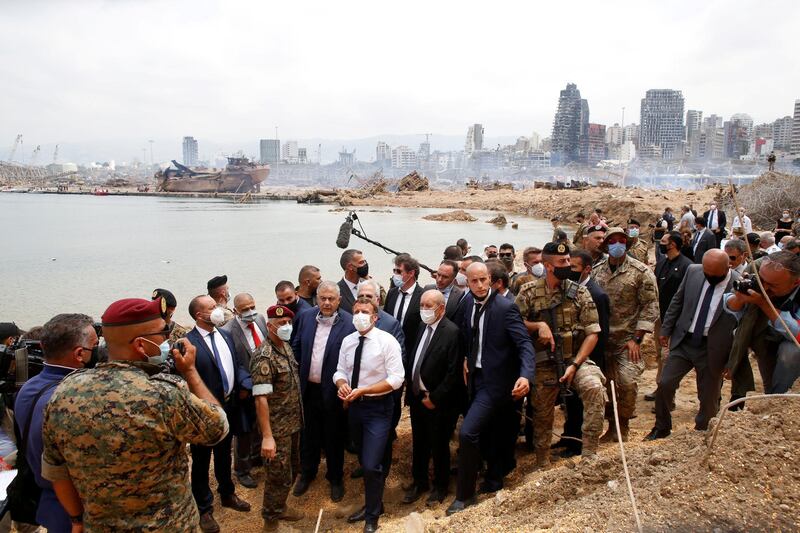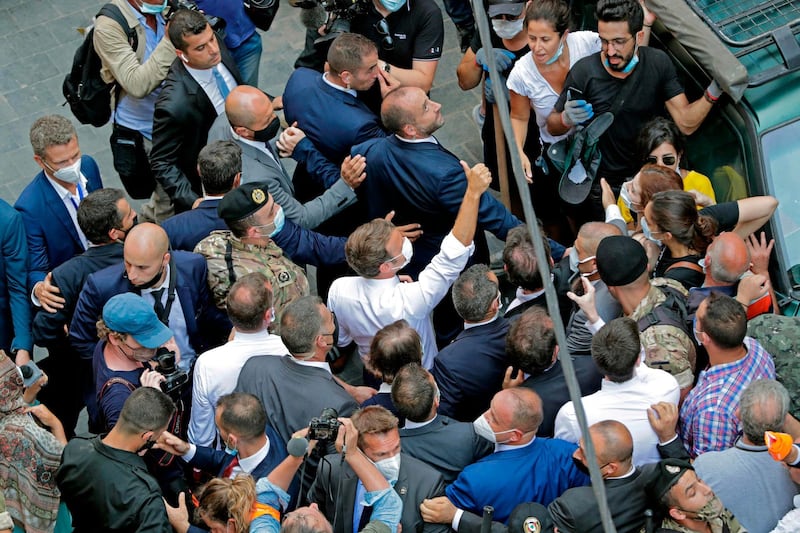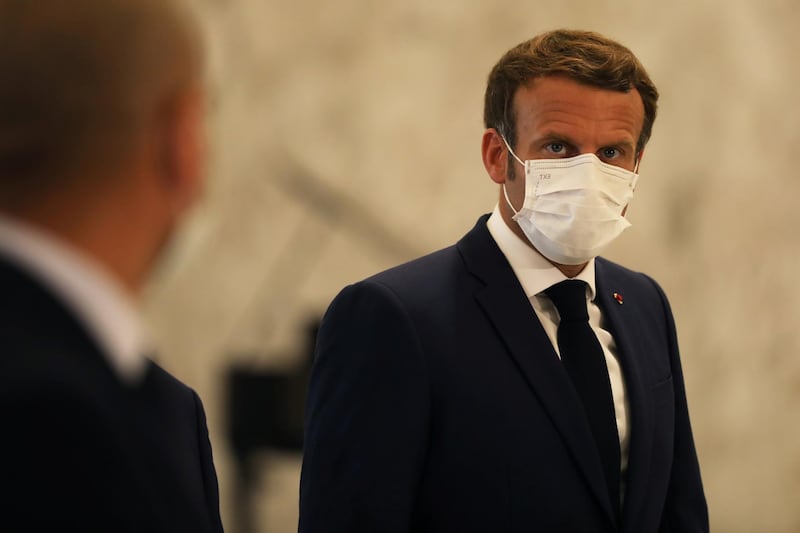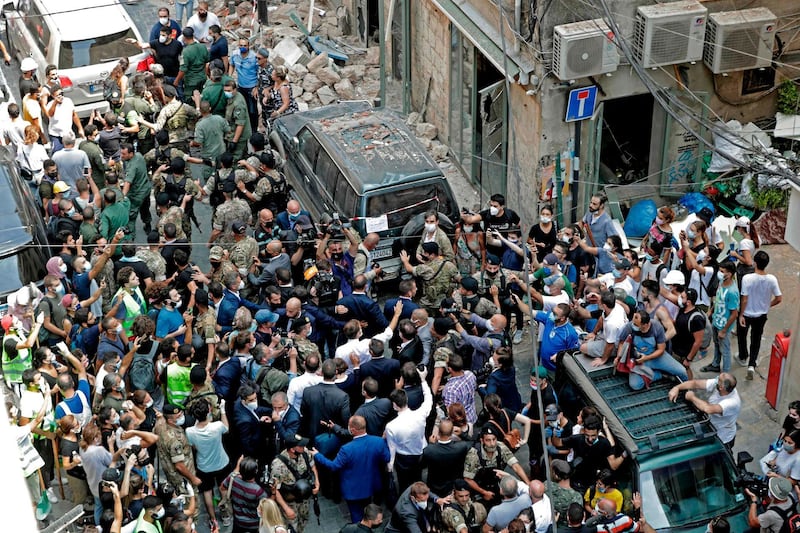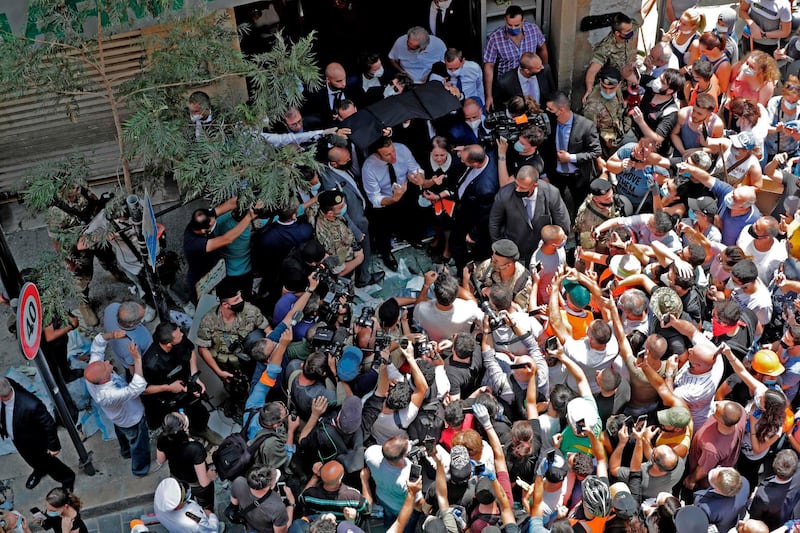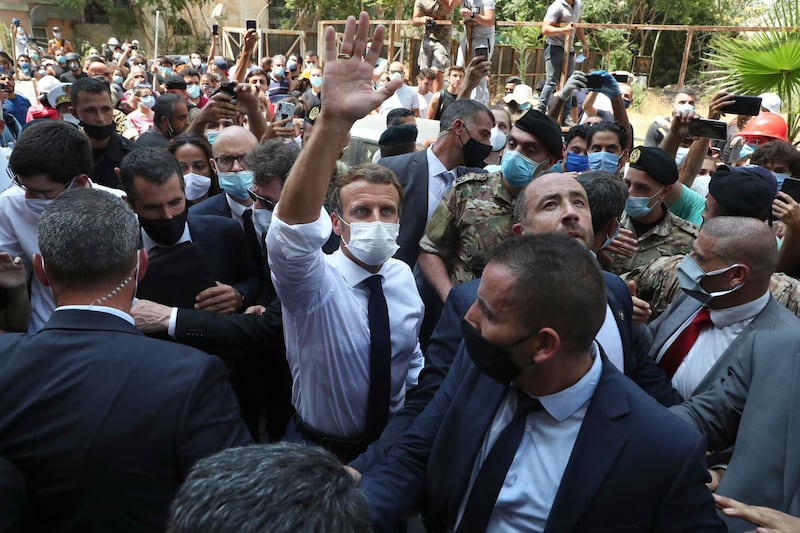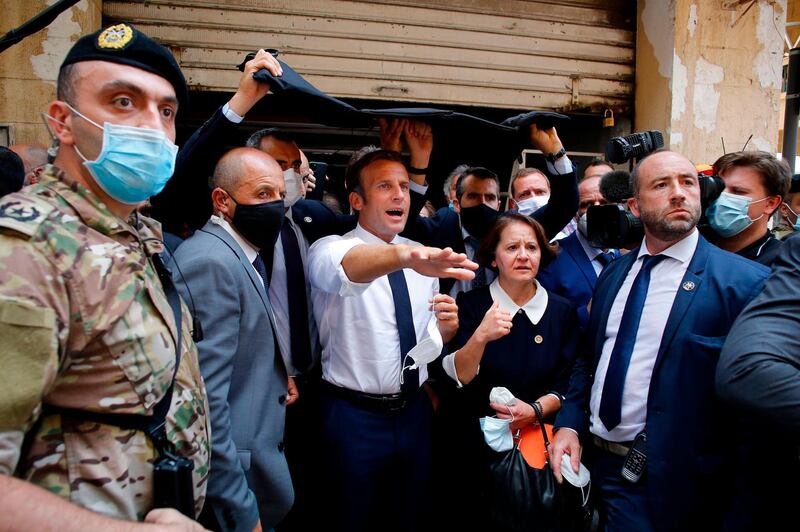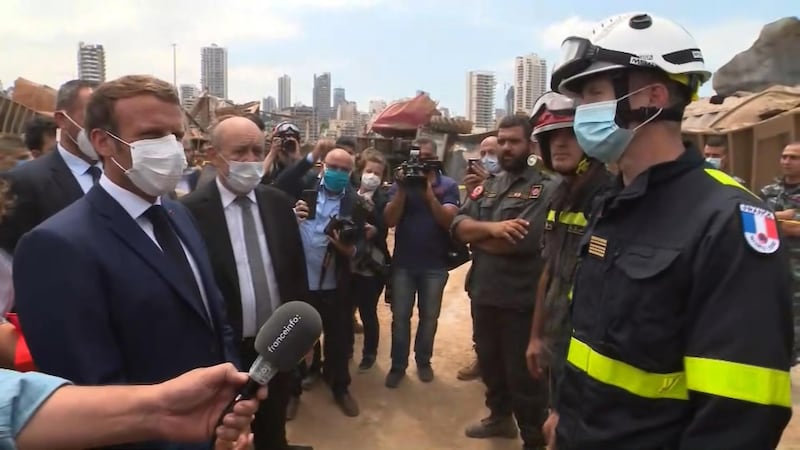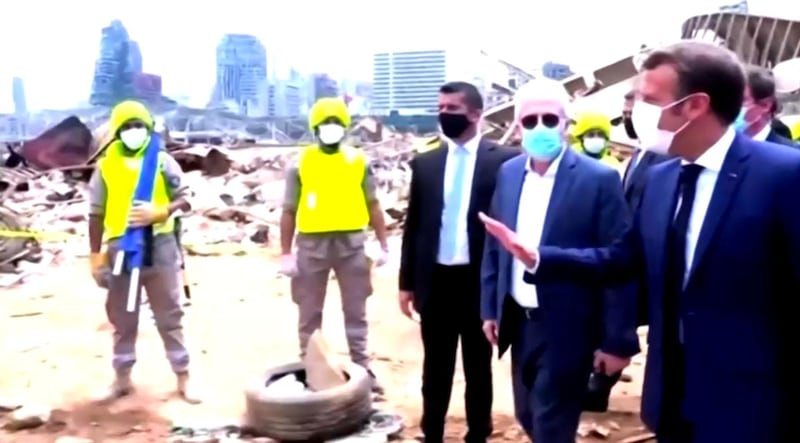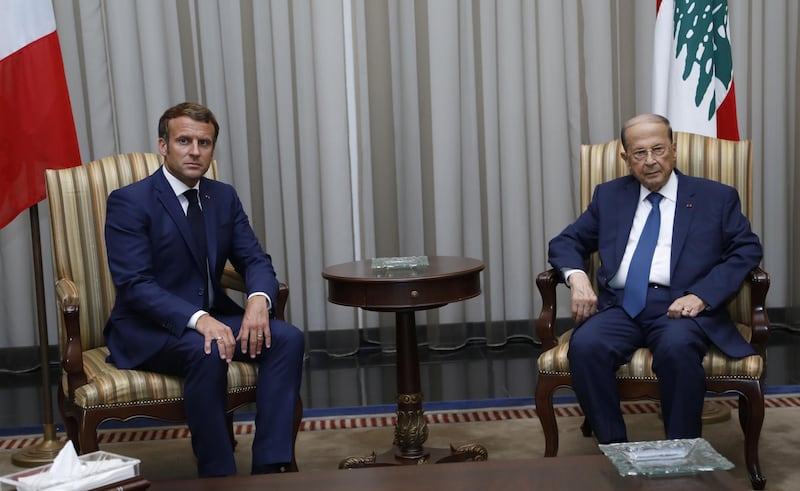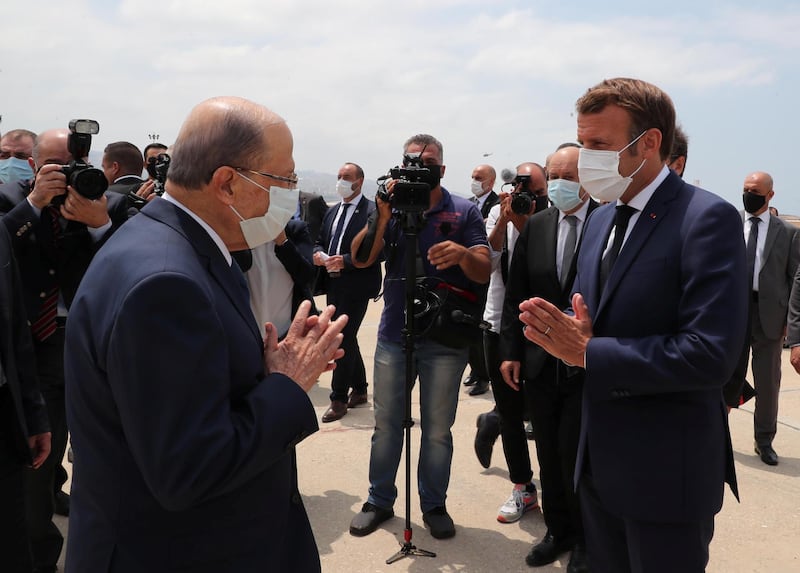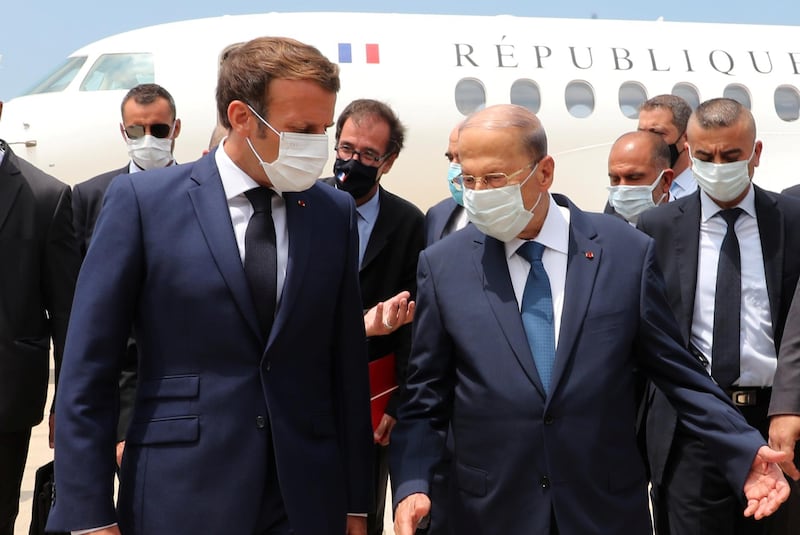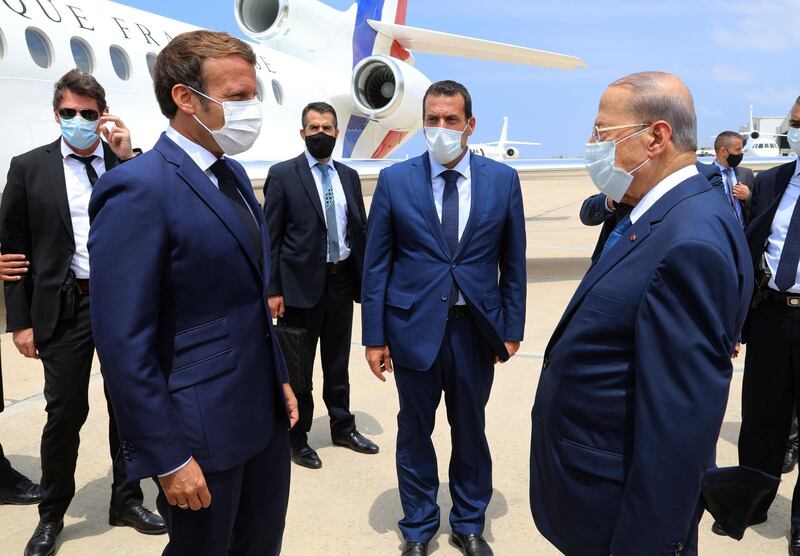Following Emmanuel Macron’s arrival in Lebanon, France’s chattering classes have backed their leader’s show of support for the stricken nation but some have questioned the French president’s heroic pose.
Mr Macron touched down in Beirut on Thursday, the first Western leader to visit the country since the devastating explosions in the city’s port that killed nearly 150 people, wounded thousands and sent a wave of destruction through the Lebanese capital.
Taking to Beirut’s streets to literally embrace its people, Mr Macron also chided the country’s political leaders. French aid and support for the Lebanese population would be “unconditional”, the French president said. But without the political reforms Paris had been urging for years, he added, “Lebanon will continue to sink.”
The French press has continued to examine the special bond between the two countries. Lebanon and neighbouring Syria became French protectorates in 1920 after the First World War and the dismantling of the Ottoman Empire.
However, the centre-left newspaper Le Monde has said the ties run deeper. Why was Mr Macron the first global leader to show solidarity with the country? "Love stories cannot always be explained," the daily asserted.
Macron visits explosion hit Beirut
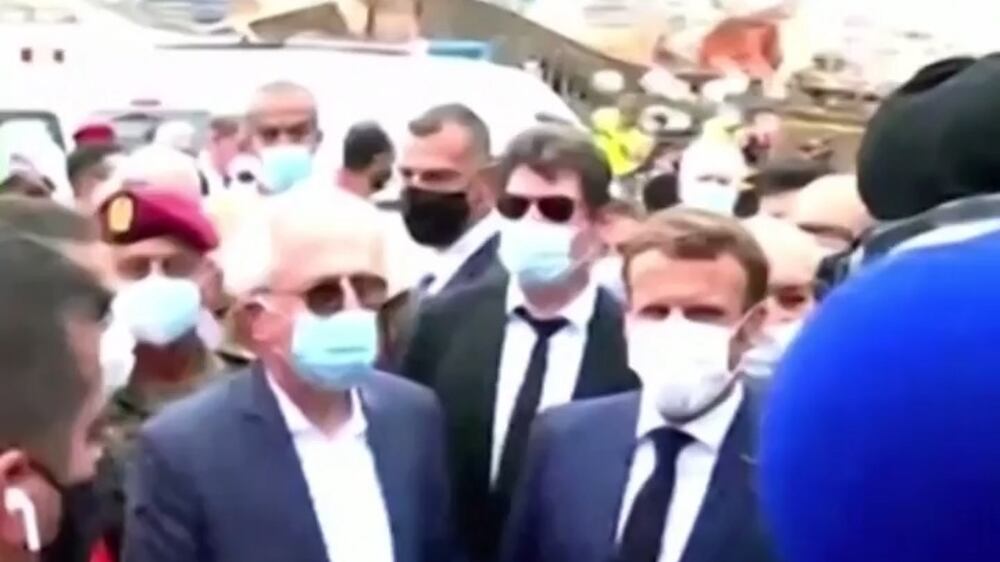
The news magazine Paris Match has drawn comparisons between Mr Macron's Beirut visit and his predecessor Jacques Chirac's eye-catching tour of the streets of Jerusalem in 1996. "In Beirut, Emmanuel Macron in Jacques Chirac mode," was the headline in the French glossy.
Mr Chirac also famously rushed to Beirut following the 2005 assassination of his friend Rafik Hariri, the Lebanese prime minister.
In January this year, similar comparisons between the two men were made during Mr Macron’s own visit to Jerusalem where he re-enacted Mr Chirac’s famous bust-up with Israeli security forces outside St Anne’s Church. That piece of political theatre, it now seems, was a dress rehearsal for a bigger stage.
Mr Macron’s political rivals have been less supportive. “Intrigued by the president’s speech in Beirut,” Olivier Faure, the leader of the French National Assembly’s left grouping, wrote on Twitter.
“Whatever one thinks of Lebanese leaders, what legitimacy to pose as a saviour?” Why the condemnation so late, putting on a scene in the middle of a tragedy?” Mr Faure asked.
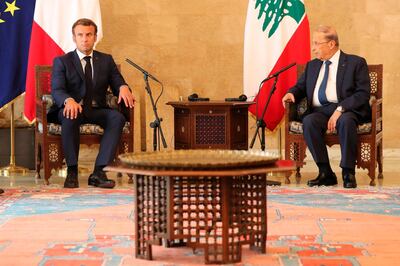
Former French presidential candidate Jean-Luc Melenchon took aim at the colonialist overtones of Mr Macron’s visit. “Where does this feeling of omnipotence come from? What’s that tone? What is he threatening? What adventure is he leading France on?” he wrote, questioning whether Mr Macron wished to take France on another Libya-style mission like former French president Nicolas Sarkozy.
In an earlier tweet, Mr Melenchon was equally condemning. “I warn against interference in the political life of Lebanon. It will not be accepted. Lebanon is not a French protectorate.”
Mr Macron has rejected the prospect of a return to the French mandate, though an online petition calling for a 10-year return of rule from Paris has garnered modest support and the proposition was put to him directly by local leaders on Thursday.
The French journalist and public intellectual Bernard-Henri Levy recently returned from his own controversial adventure in Libya and has defended Mr Macron, hitting out at Mr Melenchon and calling him “grumpy”.
“It is foolishness, after Macron’s journey to Lebanon, to howl at the violation of sovereignty,” he wrote
“As if sovereignty was the right to let oneself fall victim to thugs! And as if flying to the aid of a brotherly people was not, for 20 years, a duty and a right!”
